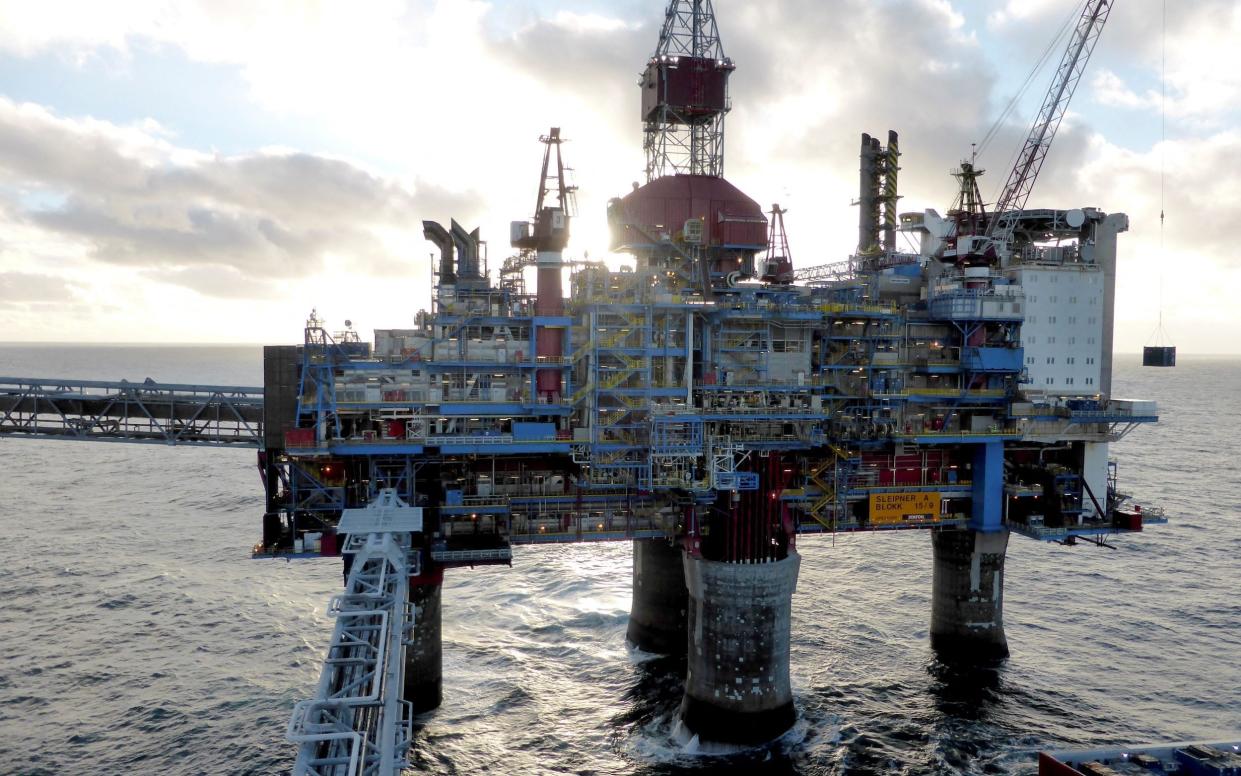Truss in talks with Norway to supply gas for 20 years amid blackout fears

The UK is in talks with Norway about a two decade-long deal for gas supplies as countries across Europe scramble to secure power supplies.
Ministers are in talks with Norwegian counterparts about prices for a potential 20-year gas supply contract, Bloomberg reported.
Norway is already the UK’s largest supplier of gas, but there is growing competition for its output as countries across Europe cope with the loss of Russian supplies.
Ofgem, the energy regulator, warned there was a “significant risk” of gas shortages in Britain this winter earlier this week. Severe shortages could see power stations that generate electricity from gas cut off, posing a risk to electricity supplies.
Senior energy bosses on Tuesday warned of risks to gas supplies next winter even if the continent manages to avoid a crisis this year, after stockpiling heavily in recent months.
Liz Truss, the prime minister, said ministers were “looking” at multi-year gas deals with Norway and around the world.
She added: "I have not signed any deal. But what I'm saying is that Britain's energy security is vital and what we will be doing is always looking for value for money, of course we will, but it's important that we have that long-term energy security.”
Maddy McTiernan, the civil servant who led the Covid vaccine taskforce, was appointed last month to try and secure long-term contracts with domestic and international oil and gas producers.
Jacob Rees-Mogg, the Business Secretary, also met with the Qatari minister for energy affairs, Saad Sheriba Al-Kaabi, in London on Tuesday.
Their talks covered “energy relations and co-operation between Qatar and the UK and means to enhance them,” according to a statement from state-owned energy company Qatar Energy.
Qatar has also been a longstanding supplier of gas to the UK, with the two countries forging closer ties through a strategic investment partnership in May.
Countries around the world are trying to forge new energy partnerships following the disruption caused by Russia’s war in Ukraine.
Russia is the world’s second largest gas producer and third largest oil producer, supplying about 40pc of Europe’s gas before its invasion.
It has drastically cut supplies to Europe since its invasion of Ukraine, partly in retaliation to sanctions. Europe is also trying to cut its reliance on fuel from Russia, meaning its dominance in Europe is unlikely to return.
The UK gets little gas directly from Russia but is part of the European market and suffers major knock-on effects from the Russian cuts.
Surging prices have forced the Government to shield households and businesses from soaring bills, at an estimated cost to taxpayers of £65bn over the next six months.
Britain has been exporting record amounts of gas to Europe in recent months, acting as a “gas bridge” for imports from the US and around the world, and helping Europe build up its stocks.
Stocks are now well ahead of target, at about 89pc full in the EU, though shortages are still possible depending on the weather and availability of imports.
Ben Luckock, co-head of oil trading at Trafigura, warned of the difficulty of getting through next winter without Russian gas.
"We may well avoid a disaster this winter, we are more concerned about the following winter," he told the Energy Intelligence Forum in London.
Outages on France’s nuclear fleet have added to the stress on the energy system, as have low hydropower levels in Norway.
On Tuesday, one of Germany’s biggest power grid operators warned that German electricity exports to France and other European allies may have to be halted this winter if the country’s network is pushed to the brink.
Hendrik Neumann, chief technical officer of Amprion, said a total halt or reduction in exports may be necessary if Germany faced its own electricity shortages.
He insisted the move would be a “last resort” and was only likely to be enacted for hours, rather than days, according to the Financial Times.
Mr Neumann added: “We are assuming a highly stressed situation during the coming winter.”
Mr Neumann’s warning will add to fears that European unity could splinter, with countries prioritising their own grids in times of crisis.
In the days after winning the leadership, Ms Truss said she wanted the UK to be energy independent by 2040.
Responding to reports of talks with Norway, a Government spokesman said: “As the Prime Minister has previously said, the new Energy Supply Taskforce has begun negotiations with domestic and international suppliers to agree long-term contracts to reduce the price they charge for energy and increase the UK’s energy resilience.
“Further details on the outcomes of these negotiations will be confirmed in due course.”
Norway overtook the North Sea to become the UK’s largest supplier last year.

 Yahoo Movies
Yahoo Movies 
